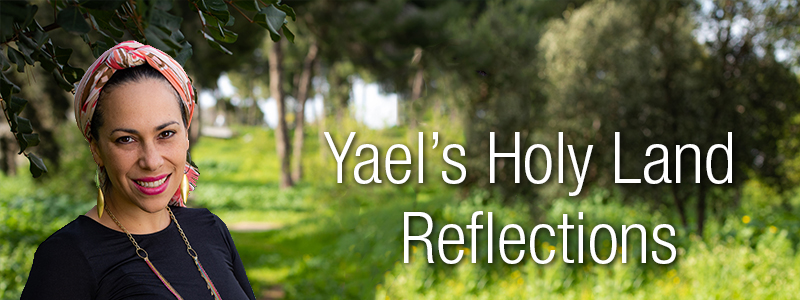
Renew Our Days
Dear Friend of The Fellowship,
At the height of the summer, when most people are having a wonderful time enjoying the warm weather, the Jewish people choose an entirely different experience. This coming Saturday night marks the beginning of the most somber time on the Hebrew calendar, known as The Three Weeks.
The date that begins this time, the 17th of the Hebrew month of Tammuz, is the date that the Romans laid siege to Jerusalem in the year 70 CE. Three weeks later, on the 9th of the Hebrew month of Av, the final day of this sad time, the Holy Temple in Jerusalem was destroyed.
For the Jewish people, this is a time of mourning. And as we prepare to enter this time, I think of the personal time of mourning I have been going through.
Six months ago when my father suddenly passed away, my sisters and I entered a state of mourning. The most difficult time, known as aninut in Hebrew, lasted from when we found out the tragic news until after the funeral. Next, we moved into the seven-day period of shiva — the traditional week of mourning — and observed Jewish laws such as sitting on low chairs, not wearing freshly laundered clothing, and not wearing leather shoes. Finally, we observed a three-week period during which we were still in mourning but resumed our daily lives. These different periods reflect a lessening of intensity as mourners travel from the day of death through the days and weeks that follow.
Starting on Saturday night Jews around the world will begin a similar journey through mourning — though, one of increasing, rather than decreasing, intensity. For the next several weeks, we will observe basic mourning practices, such as refraining from having weddings, getting haircuts, buying new clothing, or attending live musical performances. Nine days before the 9th of Av, we heighten our state of mourning and observe increased restrictions such as not consuming meat, drinking wine, or wearing freshly laundered clothing. Finally, on the 9th of Av, we are deep in mourning and refrain from activities such as eating, drinking, showering, and other pleasurable activities. We sit on low chairs and do not wear leather shoes — just as I did during the shiva for my father.
Clearly, there are parallels between this national time of sadness, and the personal experience of mourning. However, when we mourn a loved one, the goal is to gradually decrease the intensity and help the mourner move on and regain a sense of peace. When we mourn the Temple, we do the opposite. The goal is to increase the intensity of our sadness until we reach the blackest day of the year and feel the full travesty of all that we have experienced as a people. Instead of moving forward from darkness to light, we decrease the light and move towards darkness.
Yet, this practice is not about dwelling in the past. It is intended to propel us towards a better future.
Especially in the summer months, when we can enjoy the sun, the beach, and tranquility, The Three Weeks reminds us that not all is perfect. We remember that we can never make peace with a broken world. It’s a time to open our eyes wide to all suffering — to remember the oppressed, the hungry, the orphaned, and the widow.
At The Fellowship, this is what we do all year long. However, during these weeks we remember that while we must do what we can to build God’s kingdom on earth, only He can bring true healing. Only God can fix our world completely. The goal of our mourning is to turn towards yearning — longing and praying for God to rebuild His house and dwell among us once again. As we read in the Book of Lamentations 5:21. “Restore us to yourself, Lord, that we may return; renew our days as of old.”
May it be so.
With blessings from the Holy Land,

Yael Eckstein
President
